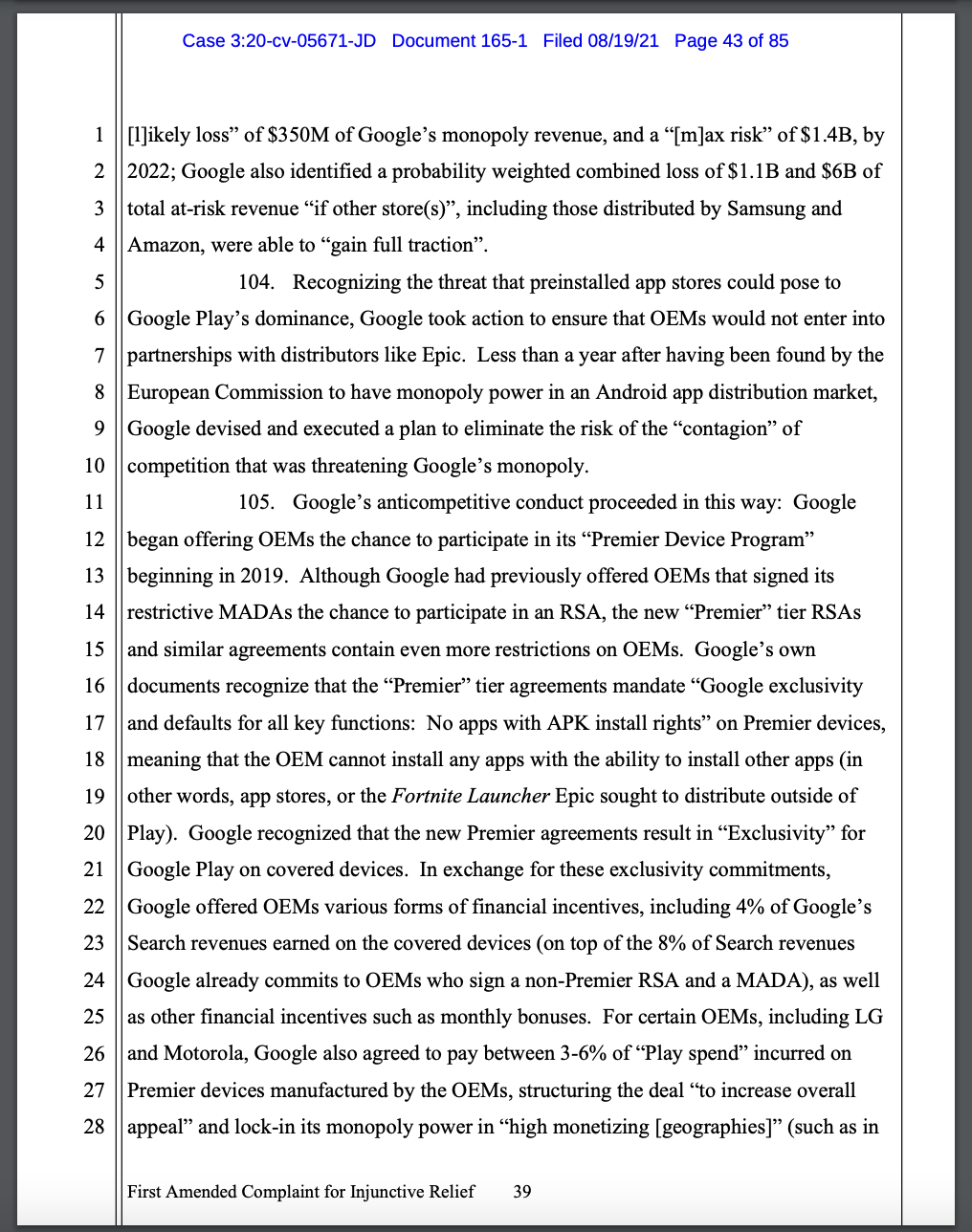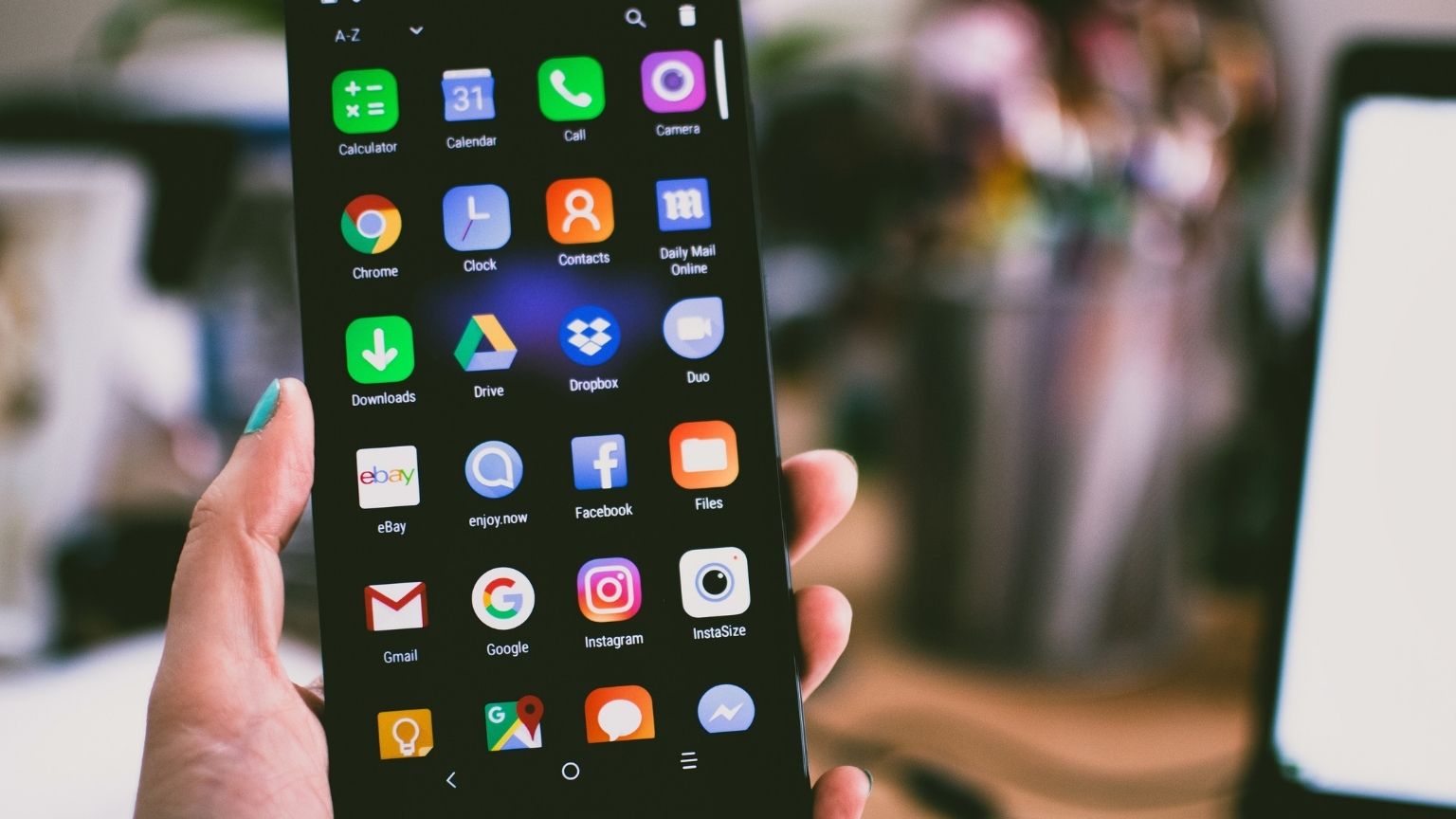As game developer and publisher Epic’s legal battle against Google continues in the antitrust case, the world is gaining some new insights into how Google – who shares the “app store market duopoly” with Apple – operates its Play Store.
This information comes from an update to the lawsuit Epic filed to add the previously redacted parts of its own antitrust case – after a California judge ordered this to also be done in a number of other lawsuits accusing Google of monopolistic Play Store policies.
We obtained a copy of the un-redacted anti-trust complaint for you here (page 43 of 85 is the relevant section.)

What has been revealed is that Google executed a policy aimed specifically at keeping third party app stores, i.e., potential competitors, off the Android platform. Google went deep, seeking to nip any competing app stores in the bud by offering device manufacturers (OEMs) a bigger cut in the lucrative search revenue share if they agreed not to ship with other app stores preinstalled.
The scheme, Premier Device Program, was launched in 2019, and meant that these phones would be sold only with Play Store. OEMs who signed on to the deal saw their search revenue share grow from 8 to 12 percent, while some like LG and Motorola were favored even more, by being given between 3 and 6 percent of the money users spend in Play Store using the phones these companies make.
Epic’s legal representatives say that Premier Device Program was not publicly known and that they only learned about it when Google had to produce documents revealing the practice during the ongoing case.
The shadowy scheme was kept that way by including the provision that it could not be publicly discussed without the other party’s written approval in the agreements.
Epic’s filing breaks down how the largest Android OEM’s reacted to this offer, to say that (the extra incentivized) LG and Motorola as early as May 2020 granted the exclusive status to Play Store on 95 and 98 percent of their devices, respectively. China’s BBK giant, which has a number of Android brands under its umbrella, including OnePlus, committed with about 70 percent.
Less impressed, but still participating significantly, were Sony and Xiaomi with 50 and 40 percent.
Epic believes that this further cemented Google’s app store monopoly on Android devices.













